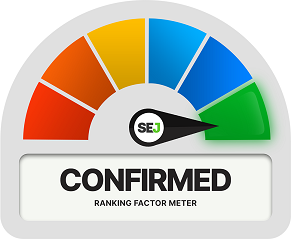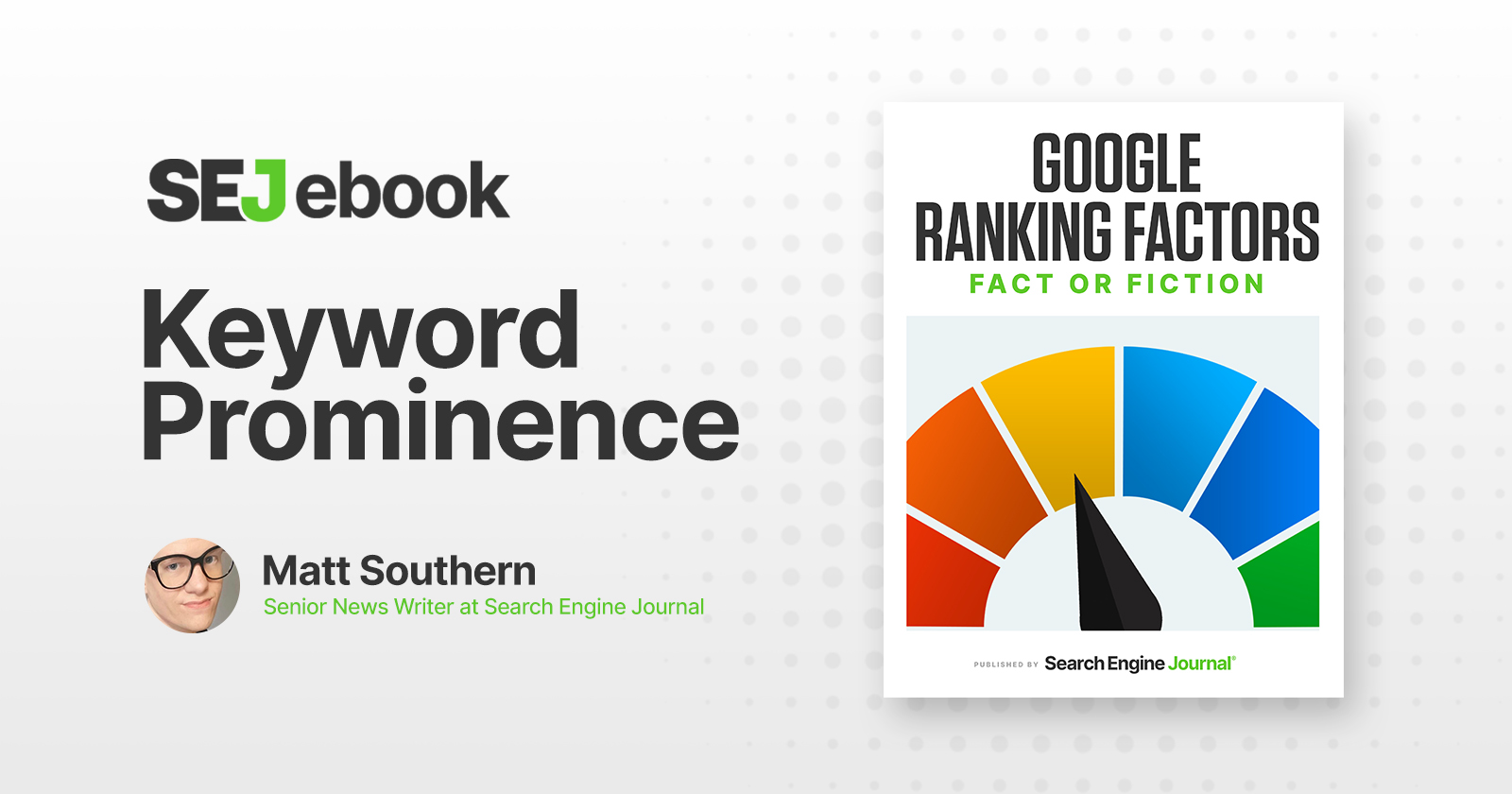Keyword prominence is an SEO best practice that involves using a page’s target keyword early in order to send a strong signal to Google about what the page should rank for.
It’s a concept comparable to the journalistic standard of never burying the lede. To “bury the lede” means to hide the main focus of a story underneath information that’s less relevant to the reader.
That’s considered a mistake in journalism because it sends a confusing message about what the most important details are in a given story.
Burying the lede in a piece of web content, with the “lede” being the target keyword, is considered a bad practice in SEO because it sends confusing signals regarding what the page is about.
That’s the consensus within the SEO industry at least. But is it an unsupported theory or has Google confirmed keyword prominence is a ranking factor?
Here’s more about the claim related to keyword prominence, followed by the evidence to back it up.
Advertisement
Continue Reading Below
The Claim: Keyword Prominence Is A Ranking Factor
Where a keyword appears on a page is said to play a role in search rankings.
SEO professionals advise using a page’s target keyword early in order to benefit from a ranking signal known as keyword prominence.
Keyword prominence correlates positively with higher rankings. The closer a keyword appears toward the beginning of titles and text, the more prominent it is.
Using a keyword less prominently is said to reduce the chances of ranking for that keyword.
When conducting a search in Google it’s common to see results where the exact keyword you entered appears at the beginning of page titles.
Anecdotally speaking, a case can be made that keyword prominence is a ranking factor.
Is it confirmed by Google?
Let’s take a look at the supporting evidence.
Keyword Prominence As A Ranking Factor: The Evidence
Early Evidence
Evidence supporting keyword prominence as a ranking factor dates back as far as 2011 where it’s mentioned in a video with former Googler Matt Cutts.
Advertisement
Continue Reading Below
He discusses how Google picks up on the use of keywords when crawling the web, and that the first few uses of a keyword will send signals to Google about a page’s main focus.
Cutts cautions site owners not to overdo their use of keywords, however, because more isn’t necessarily better.
“The way that modern search engines, or at least Google, are built is that the first time you mention a word — [Google thinks] “Hey that’s pretty interesting, it’s about that word.”
The next time you mention that word, [Google thinks] “Oh OK, it’s still about that word.” And once you start to mention it a whole lot, it really doesn’t help that much more. There are diminishing returns. It’s just an incremental benefit, but it’s really not that large.
… So the first one or two times you mention a word than that might help with your ranking, absolutely. But just because you can say it seven or eight times that doesn’t mean that it will necessarily help your ranking.”
Recent Evidence
A lot has changed in SEO since 2011, but Google’s guidance on keyword prominence remains the same.
Here’s more recent evidence from Google’s John Mueller addressing the topic in 2021 during one of his weekly Q&A sessions (at the 6:43 mark):
“I would recommend, if there’s something that you want to tell us that your page is about, to make that as visible as possible. So don’t just put that as a one word mention on the bottom.
But rather, use it in your titles, use it in your headings, use it in your subheadings, use it in your captions from images, all of these things to make it as clear as possible for users and for Google when they go to your page that this page is about this topic.
So that’s kind of the direction I would take there. I would not worry about like, can Google get to the word number 20,000 or not. Because if you’re talking about the word 20,000, and you’re saying this is the most important keyword for my page, then you’re already doing things wrong.
You really need to make sure that the information that tells us what this page is about is as obvious as possible so that when users go there they’re like “Yes, I made it to the right page, I will read what this page has to tell me.”
Advertisement
Continue Reading Below
Mueller makes a great point about thinking of keyword prominence from a user experience perspective.
Circling back to our analogy of burying the lede, when you use the most important keyword as early as possible you end up optimizing for readers and Google at the same time.
Other Considerations For Keyword Prominence
We’ve touched on how keyword prominence impacts SEO, how it impacts the user experience, and now we’re going to discuss how it can potentially impact click-through rate.
Mueller strongly advises making your most important keyword obvious in titles, headings, subheadings, and the main copy.
Page titles are not only a factor for SEO, they can also influence click-through rates from organic search results. That’s another reason keyword location is particularly important, as rankings mean nothing without traffic.
In the English language we read left to right, so a page title with the keyword closest to the beginning is going to catch a searcher’s attention since it matches what they typed into the search bar.
Advertisement
Continue Reading Below
The goal with SEO isn’t just to appear at the top of search results, it’s to get searchers to click on your page over others. Strategically placed keywords can help accomplish that.
Now think about what your visitors are going to do when they land on the page. They’re most likely going to skim through the content rather than read word for word.
With that in mind, you want to use the keyword as early on as you can in an article. You want to make sure the reader is going to see it as they’re skimming.
Use the keyword toward the first paragraph, or even in the first sentence if you can. You want to immediately show the reader that they’ve found the right article to assist them with their search query. Otherwise, they’re going to leave.
As you continue writing the content make sure to use the keyword again in headings, and anywhere else the reader’s eyes are likely to jump to as they’re skimming a page.
Advertisement
Continue Reading Below
Keyword Prominence As A Ranking Factor: Our Verdict

Keyword prominence is a confirmed ranking factor.
Google has reinforced time and again that using a keyword toward the beginning of a piece of copy is better, from an SEO standpoint, than if it first appeared further down a page.
If you want to maximize your chances of ranking for a particular keyword, then include it in your intro paragraph. Use the keyword early, but don’t use it too often, or you may run into problems with keyword stuffing.
Advertisement
Continue Reading Below
For more on how frequently a keyword should appear on a page, see our chapter on keyword density.
Featured image: Paulo Bobita/SearchEngineJournal
